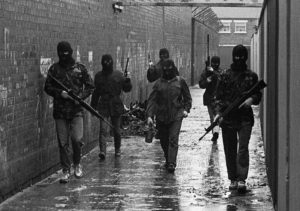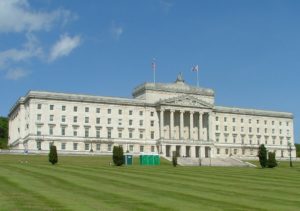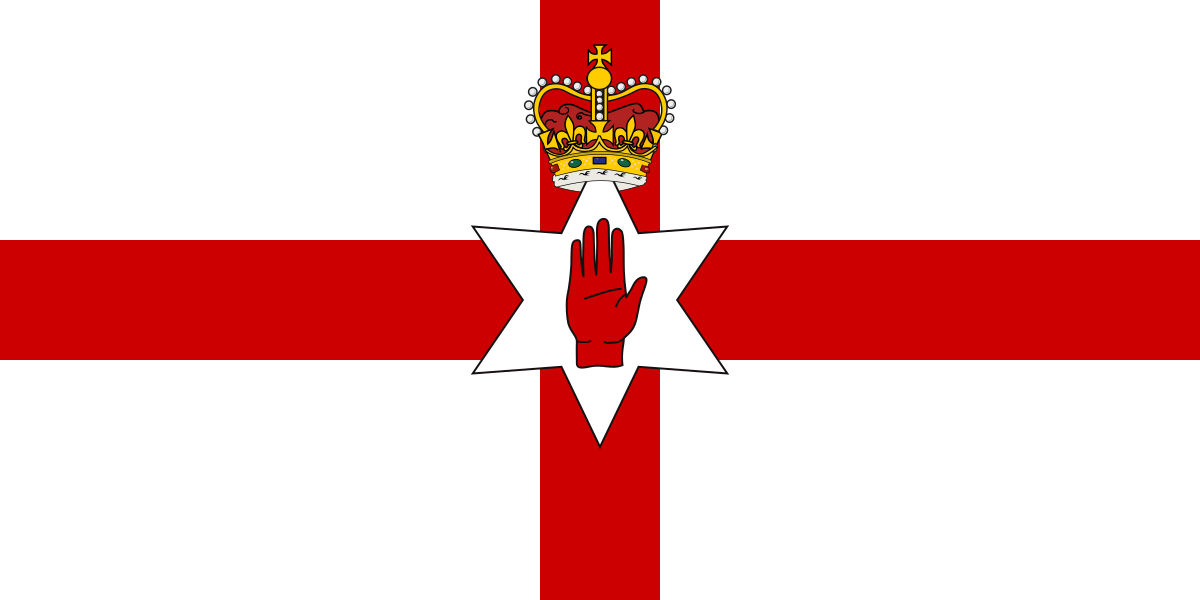Northen Ireland’s Lack of Government (And why you should care) -Mr Johnson
On Tuesday 28th August 2018, Northern Ireland made world history. It had been 589 days since there was a functioning government in the region, after the power sharing deal between Sinn Fein and the DUP (Democratic Unionist Part) collapsed in January 2017. Northern Ireland has now been without a government for over two years. Amid all the talk of the Irish backstop, there has never been more focus on this part of the United Kingdom and yet little attention is devoted to its lack of government. So, why should you care about that, when there are so many other pressing issues facing this country?
To my great shame, I arrived at university knowing very little about Irish history. It is not something that I was taught at school; my history curriculum focused more on the Tudors and the Second World War. The Troubles and the IRA were phrases I had heard, of course, but they were little more than that. It was not until I arrived at university and made friends with a couple of politically-engaged students from Northern Ireland, students who had, moreover, been taught their own history at school, that I began to get even a small idea about Northern Ireland’s recent and turbulent past.
Ever since the Republic of Ireland gained independence from Britain in 1922, there have been tensions between the largely Catholic Republicans, who want an independent Ireland, and the mainly Protestant Unionists, who wish to remain part of the United Kingdom. These tensions became violent throughout the 1970s to 1990s, with multiple terrorist acts being perpetrated. Eventually, in 1998 both sides reached an agreement called the Good Friday Agreement, which preserved the status quo of Northern Ireland remaining part of the UK, while also leaving open the possibility of a united Ireland. One of the ways this was achieved was by establishing a power sharing agreement at Stormont, the Northern Irish parliament in Belfast. Essentially, the government always had to be made up of both Unionists and Republicans working together. It was this system of governance that collapsed in January 2017.

Arlene Foster, the then First Minister of Northern Ireland and leader of the DUP, had in 2012 signed off on a green energy scheme, the mismanagement of which has cost the Northern Ireland government £480 million. Once that was discovered, the late Martin McGuiness, then Deputy First Minister and leader of Sinn Fein, resigned, this bringing to an end the power sharing agreement. Since then, despite an election and multiple attempts at talks, no new agreement has been reached. The issues involved have since spiralled outwards to include Sinn Féin’s desire to introduce an Irish Language Act (to give Gaelic parity with English) and allow homosexuals to marry, both of which are staunchly opposes by the highly conservative DUP.
In the face of this lack of progress, Northern Ireland has been run by civil servants, providing only necessary services with constrained resources. No new legislation has been able to be passed, meaning Northern Ireland is still the only place in the UK or the Republic of Ireland where abortions and same-sex marriage remain illegal.

The obvious solution to all this, you may say, is to just rule Northern Ireland from Westminster, as it was between 1972 and 1998 during the Troubles. This is indeed an option, but one which would prove unpopular on both sides. For the DUP, they worry that Westminster will use this as an opportunity to bring in same-sex marriage and legal abortions (despite the DUP’s assertion during Brexit negotiations that they do not wish to be treated differently from the rest of the UK). For Sinn Fein, who ultimately wish for Northern Ireland to become part of the Republic of Ireland, it would be an unacceptable move towards closer union with the UK. Both sides also fear a return of the Troubles, which saw around 3,500 people lose their lives. It would also be a massive step back after all the progress towards peace that have been made in the region over the last 20 years. There are fears this is already happening after a car bomb exploded outside a courthouse in Londonderry on 20th January this year.

So why should you care, stuck over here on the Stour estuary about as far from Northern Ireland as you can get and still be in the UK? While everyone waits to see the outcome of Brexit on 29th March, Northern Ireland remains ungoverned. Imagine now that it was not just the 1.87 million people of Northern Ireland who are without government, but the whole of the UK. While essential services such as the NHS would continue to run, this already cash-strapped service would have to continue without fresh funds. Even without Brexit to contend with, think of all the other issues that face our country: global warming, an aging population, no new series of Doctor Who until 2020. All these problems require solutions at a governmental level. No government, no progress. You should care because this is the situation nearly 2 million of your fellow citizens are facing. That is why you should care. The history of Northern Ireland is our history too, regardless of where you stand on the issue of Irish independence.
If you wish to know more about this and in particular the pros and cons surrounding direct rule as a solution to this problem, I would urge you to come to the next de Leybourne debate, This House would impose direct rule on Northern Ireland, on Tuesday 12th February at 6:30pm in the Library.















Post Comment
You must be logged in to post a comment.